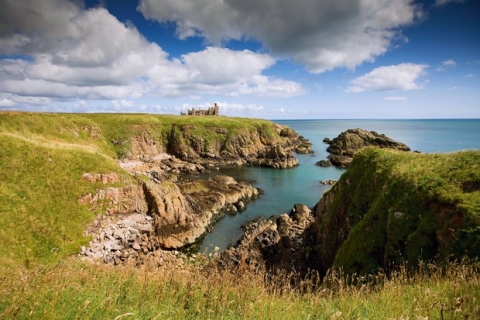Lost Scottish prehistoric village discovered at Cruden Bay

Cruden Bay (Scottish Gaelic: Inbhir Chruidein) is a village on the north coast of the Bay of Cruden in Aberdeenshire, Scotland. Archaeologists have now discovered an ancient settlement at Cruden Bay, dating back to the Iron Age. The site was earmarked for development when digging revealed a number of prehistoric features and Cameron Archaeology began the careful process of evaluating the area of the find. Work carried out in May and June of 2019 has now been confirmed as having uncovered some 23 structures along with prehistoric pottery and flint tools.
It is thought that the settlement probably dates to the Iron Age from around 800BC to 400AD. However, further information on the dates will be confirmed after samples have been studied by Aberdeen University’s archaeology department. Stone tools are also being studied by a lithics specialist. The discovery of an ancient village, which has been forgotten about for centuries and is now gradually coming to light has been welcomed by those with an interest in the heritage of Cruden Bay. There is considerable evidence of prehistoric activity in this part of Aberdeenshire. Most notably in the form of the Catto Long Barrow close to the village of Longside, as well as numerous tumuli.
Cruden Bay is also famous for being the site of a battle in which the Scottish under King Malcolm II (Gaelic: Máel Coluim; c. 954 – 25 November 1034) defeated the Danes in 1012. Traditionally, the name was derived from the rather gruesome Gaelic words Croch Dain meaning Slaughter of Danes. The village has later associations with various figures in literature. Including Irish author Bram Stoker (8 November 1847 – 20 April 1912) who wrote the Gothic horror novel Dracula. He was a regular visitor between 1893 and 1910. He stayed at the Kilmarnock Arms Hotel in 1893 and 1894, and thereafter in cottages in Cruden Bay and Whinnyfold. It was here that he wrote a number of the chapters of Dracula.
Image credit Cruden Bay Alamy.





